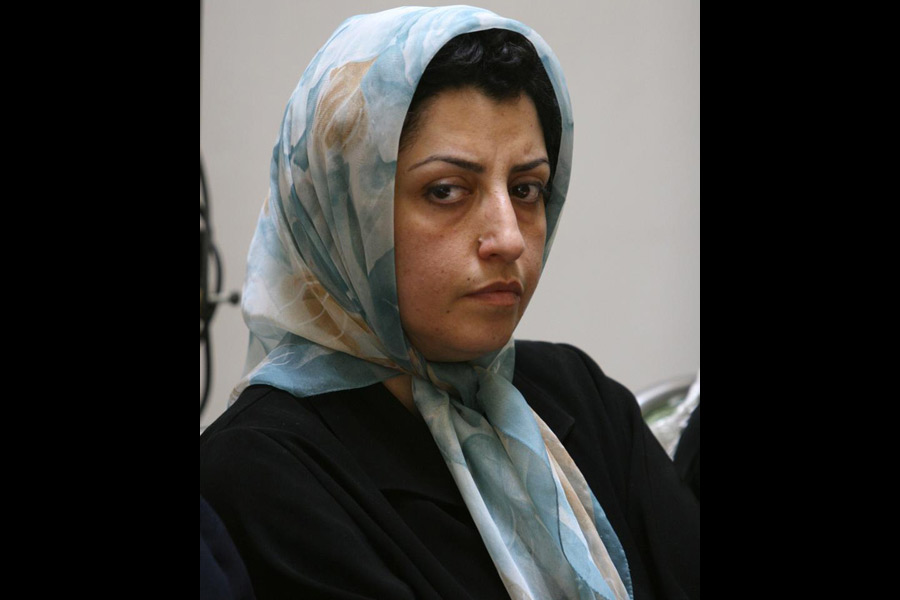|
|
| Marc Chagall, Above the City |
The Institute of Liver and Biliary Sciences, in the dusty outer reaches of Delhi’s Vasant Kunj, sounds like an unlikely setting for epiphanies. A massive new stone, glass and concrete structure that is named after liver and bile would have delighted the baroque, hypochondriac imagination of someone like Robert Burton, the 17th-century anatomist of melancholy. But when I checked in there for an indefinite stay as my mother’s carer two years ago, the monumental grimness of the place chilled my eyes and heart.
It was towards the end of January — the peak, or nadir, of the Delhi winter. The sky remains grey and leaden for entire days, and the cold sinks into your bones as evening settles. But the sun coming out would have made no difference to the inmates of the institute, for no daylight ever enters the building. There is a vast, high atrium. But if you stand in it and look up, you will get no glimpse of the sky. You are surrounded by walls with rows and rows of window-frames that look out on one another. Through them you see endless tableaux of care — in both senses of the word — arranged in sky-high grids. (If the timeless prisons that Piranesi engraved had been whole buildings instead of ruins, their insides would have resembled this institute, give and take a few centuries.)
Each window-frame presented a mix of mortality and minimalism: human beings absorbed in the antiseptic business of being ill, getting well or dying. The ILBS is the sort of place where the nurses only do specialized nursing; patients have to have their own carers staying with them day and night. So, the building holds patient and carer alike in its stone embrace, or in a giant womb of echoing silence, broken from time to time by the clatter of metal on enamel or glass, or the muted whoooosh of state-of-the-art elevators. The place is too huge for little human noises.
So, the brief vignettes one caught in the window-frames were like fragments of silent cinema — a boy sitting on a stool by his grandfather’s bed, keeping watch on the old man’s drip and trying not to topple off the stool in his drowsiness, a sweeper quickly pocketing something that looks re-usable from a bedside bin, a young doctor gazing deep into the eyes of another at the foot of a woman in coma.
My mother and I usually stayed at the G.B. Pant Hospital near Old Delhi when we came from Calcutta to see her doctor, and the Brueghelian chaos and noisiness of the place always made me think of it as a republic, or even a carnival, of care. But there was something Lenten about the Liver Institute (as the rickshaw-drivers called it). If G.B. Pant was a republic, then this was the State, with more than a touch of the Foucauldian panopticon to it. Yet, every afternoon at five or so, when visiting hours started, I would wait for a certain kind of moment inside this sunless mausoleum that I can only describe as magical. It was a moment that gathered within itself all the sombreness, anxiety and suffering of the place and transformed them into an interregnum of lightness, an overcoming of gravity, which was all the more tender and precious because it was so fleeting and precarious in its inwardness.
Most of the carers, especially of the elderly, struck me as remarkably young — college girls or boys pressed into care by the family because their time was the most easily colonizable compared to their older kin, who went out to do ‘proper work’. I would see these young people hunched over their ailing kin all day with a look of unqualified and self-effacing devotion. Some of them were obviously from the villages or small towns, or from, say, Bangladesh or the Northeast, and they came to the institute with bedding and chattels because they were going to have to stay indefinitely and minimally in a place far away from home. These young carers seemed to give themselves over to a form of service that brought out what was most obedient and familial in them. To my eyes, their attitudes and expressions suggested structures of feeling and allegiance that went back to the old feudal- patriarchal extended family. I tried not to attribute these structures to a particular region, class or community simply because my own feelings about why I was there happened to be so muddled and restive.
It was at once touching and disturbing to see this obedience, this unquestioning dedication, on the faces and bodies of people so young. I wondered if they ever resented their time and other resources being taken for granted like this. Was there never any moment of resistance or contrariness in their compliance with what was expected of them by their families? What sort of freedom or independence from the family would they enjoy when they grew up — if they grew up at all? In the welfare states of the Western world, young people, however ill their immediate family, would never have to give of themselves in this way, or to this physical extent, because the State takes that responsibility upon itself, and that determines their experience of being young and of being old — what it means to be an adult in relation to the people we care for, or are expected to care for.
At five (if I remember correctly), the visitors’ bell would ring, and the other kin poured in. I saw the younger carers taking this chance to slip out from their bedside vigil into the common area on each floor. And the moment they stepped out, they pulled out their mobile phones. In seconds, their faces would begin to glow and their eyes glitter as they paced up and down, oblivious to everything else, talking into their phones. Standing on the topmost floor and looking around and down on the other floors, I would observe masses of such young people talking intently on their phones and walking about. Suddenly, a great weight seemed to have been lifted off their shoulders and minds, so that they appeared almost to float in that hard-bought and short-lived weightlessness. Sometimes, I would eavesdrop on their conversations: they were mostly romantic.
I realized that it happened to me too, and exactly in the same hour, when the light was the gloomiest outside — this peculiar feeling of lightness, or levitation, as I reached my companion, or a friend, in another city or hemisphere: an alien from Planet Care. And because it was happening to such a large body of people stuck in the same space, the whole air of the place would lighten and change miraculously.
It would remind me always of those unforgettable moments in an otherwise terrifying and oppressive film, Tarkovsky’s Solaris, when everyone inside the abandoned spaceship marooned above a sea of consciousness would experience a few minutes — or was it seconds? — of actual weightlessness. The ravaged and death-haunted hero of Tarkovsky’s film, and his phantom wife returned from the dead, would wait in the ship’s library, full of strange old objects and hung with Brueghel’s sublime snowscapes, for that parenthesis in time in which they would begin to float — somewhere between hopelessness and comfort, unmindful in their raptness of the fragility of this experience.
The poet, John Keats — for whom youth and sexual ardour always coexisted with fear of contagion and the chill of death — once had a similar vision in a dream, which he then turned into a sonnet a couple of years before he died in his mid-twenties. Great poetry, reading it as well as writing it, becomes inseparable in this sonnet from the mingling of life and death, desire and decay, which his own youth and sexuality meant for Keats, as carer, lover and poet (he had nursed his brother, Tom, who died of the illness that would kill John too). John’s dream comes out of his reading of Dante’s Inferno, but ends up in the “dragon-world” with its “hundred eyes”, brutally mortal, yet shot through with poetry: “that second circle of sad hell,/ Where in the gust, the whirlwind, and the flaw/ Of rain and hail-stones, lovers need not tell/ Their sorrows — pale were the sweet lips I saw,/ Pale were the lips I kiss’d, and fair the form/ I floated with, about that melancholy storm.”











